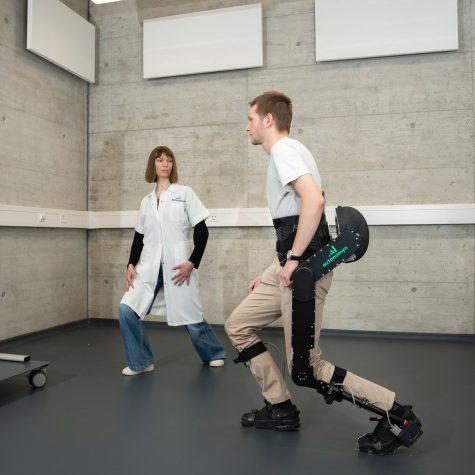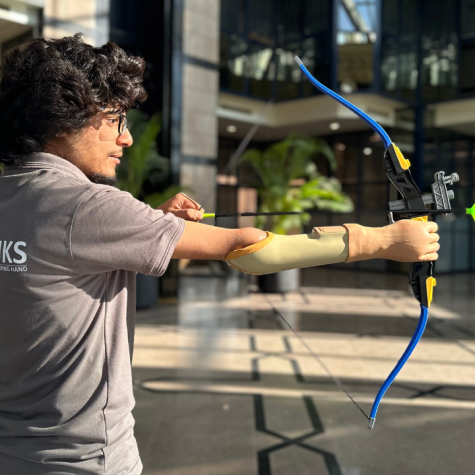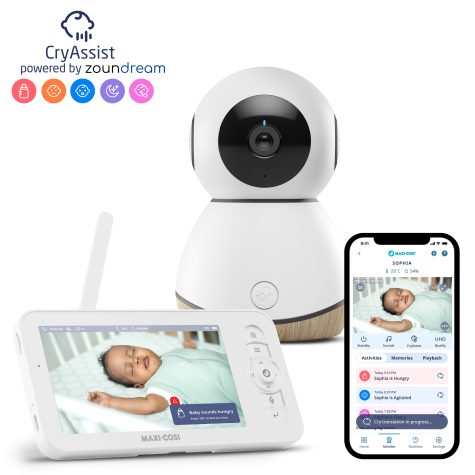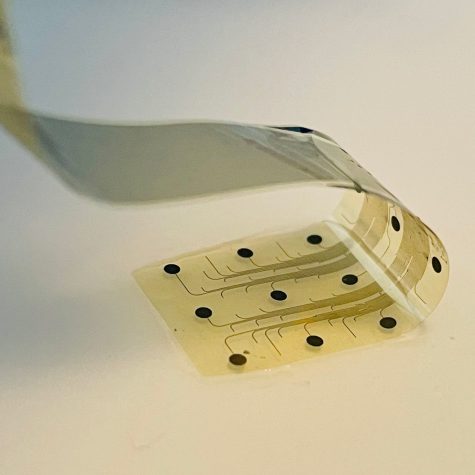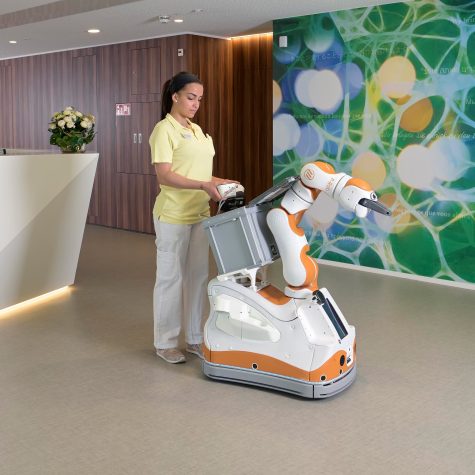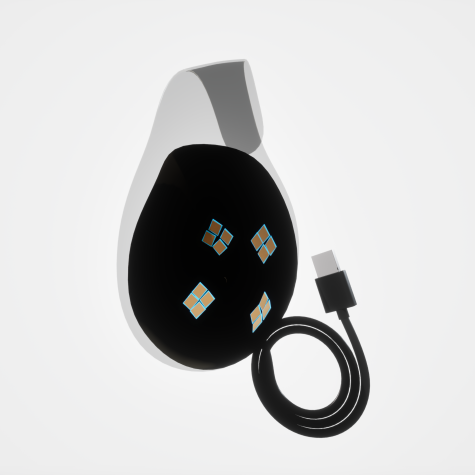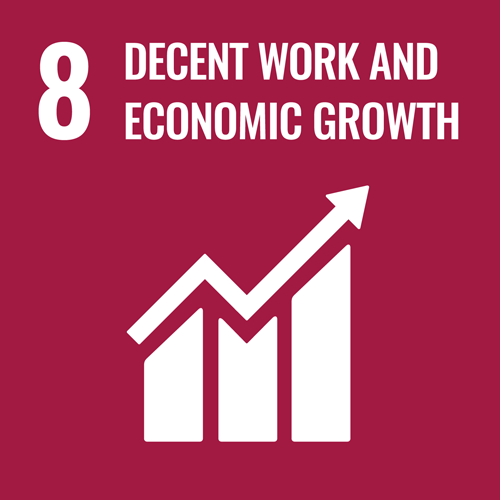AI-powered solutions in healthcare advancing accessibility, monitoring, and assistance
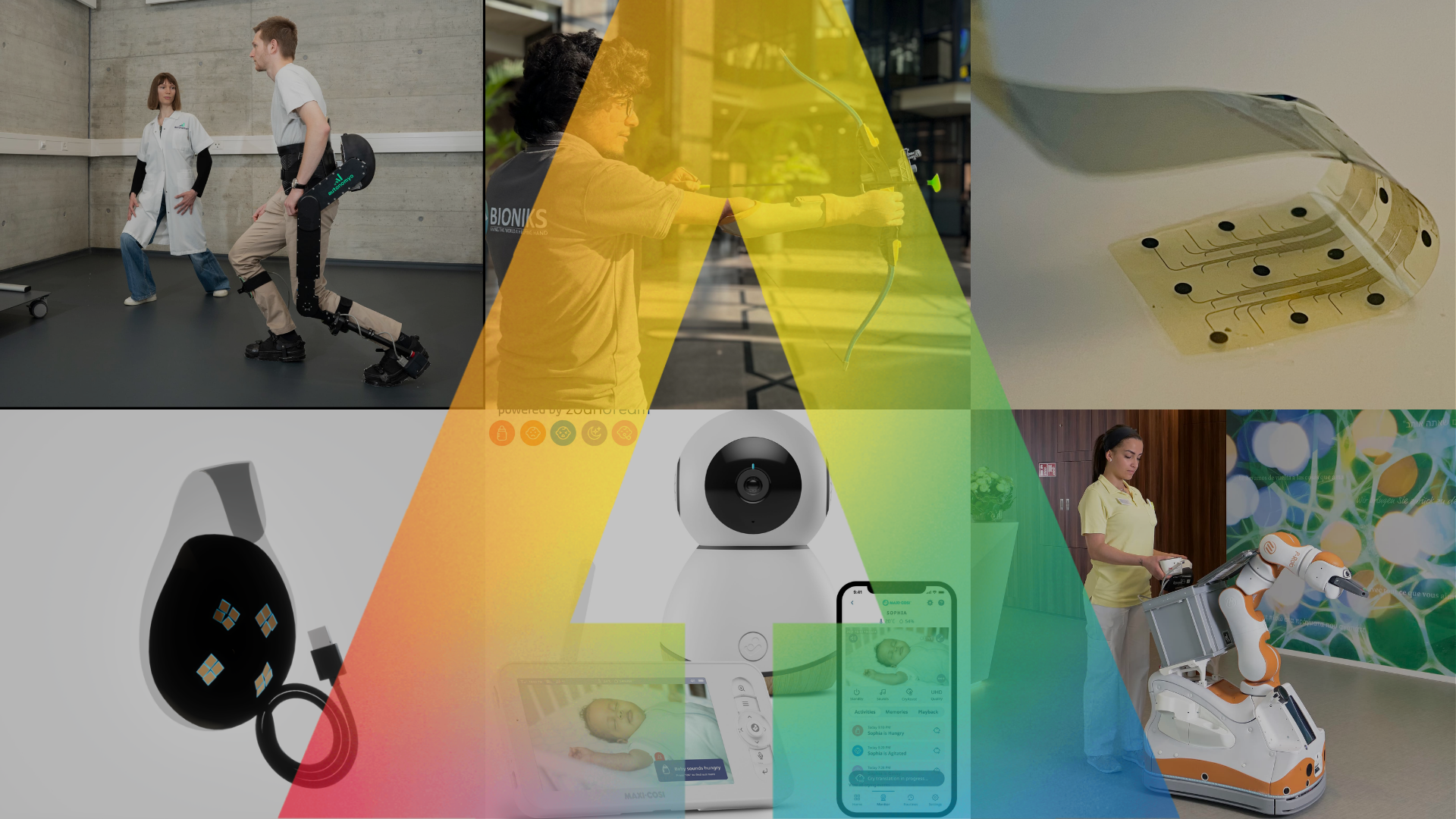
- 17 May 2024
The AI for Good Global Summit 2024 is expected to transcend the typical boundaries of a conference, spotlighting the most innovative applications of artificial intelligence (AI) in various sectors. In about two weeks, more than 90 interdisciplinary demos will be featured at the AI for Good exhibition floor: from robots and drones to the most advanced brain-machine interfaces. All highlight AI’s vast potential to achieve the United Nations Sustainable Development Goals (SDGs).
As healthcare challenges continue to evolve, breakthroughs in robotics and AI offer promising solutions. This year’s lineup will feature a wide range of AI-powered innovations designed to enhance healthcare delivery. These pioneering technologies encompass a spectrum of applications from enhancing accessibility and monitoring health to assisting healthcare providers, all contributing to the achievement of the United Nations’ Sustainable Development Goals (SDGs). All of them contribute to SDG 3: Good Health and Well-being, while some also advance SDG 1: No Poverty, , SDG 8: Decent Work and Economic Growth, SDG 9: Industry, Innovation, and Infrastructure, and SDG 10: Reduced Inequalities.
Revolutionizing rehabilitation and accessibility
Autonomyo’s Platform, designed by Autonomyo, exemplifies the intersection of AI, robotics and rehabilitation. It is designed for individuals with neurological neurological impairments that affect walking, offering a thorough solution for sustained and intensive gait training. By integrating a digital training application, sensors, and an active orthosis, the system ensures continuous rehabilitation, whether at home or in clinical settings. The exoskeleton secures an upright position and directs the motion of the lower limbs, enabling varied movements of the hip, knee, and ankle. By allowing therapists to customize training programs and providing real-time feedback on gait parameters, Autonomyo enhances the accessibility and effectiveness of rehabilitation. This innovation aligns with SDG 3 by improving the quality of life for individuals with disabilities, enabling them to regain mobility and independence.
With the Bionic Arm, Bioniks’ is at the forefront of creating affordable, AI-powered bionic limbs. Their bionic arm, crafted from durable materials like carbon fiber and aircraft aluminum, offers a lifeline to individuals with limb disabilities. The prosthetics are custom-designed and do not require surgical intervention, making them accessible and cost-effective. Features like Bluetooth connectivity for remote troubleshooting and a mobile app for 3D stump scans exemplify Bioniks’ commitment to innovation. This technology supports multiple SDGs, including SDG 1 and SDG 10, by providing affordable solutions that enhance physical accessibility and independence.
INBRAIN BCI Therapeutics Platform, created by INBRAIN Neuroelectronics, harnesses the power of graphene-based neuro and bioelectronic therapies to offer personalized treatment for neurological disorders such as Parkinson’s Disease. Their implantable platform, driven by machine learning algorithms, facilitates communication with the nervous system, providing unmatched customization in therapeutic interventions. By addressing a range of brain pathologies, INBRAIN not only improves patient outcomes but also advances the understanding of neurodegenerative diseases. This technology underscores SDG 3 by promoting health through cutting-edge scientific research and innovation.
Advancing health monitoring
With the Smart Bra Device, Nextwear Technologies introduces a novel approach to breast cancer detection and monitoring through smart clothing technology. Employing non-invasive ultrasound and AI, the device allows women to check their breast health daily, facilitating early cancer detection and ongoing monitoring. Unlike traditional methods that use potentially harmful radiation, this technology is safe, user-friendly, and accessible. The Smart Bra Device contributes to SDG 3 by enhancing early detection of cancer, thereby improving survival rates and health monitoring.
AMSI (Acoustic MultiStage Interpreter), developed by Zoundream, leverages deep learning to decode the meaning behind a baby’s cry. This innovative solution helps parents and caregivers assess the well-being and health status of infants, providing insights into their needs and potential health issues. By identifying pathologies and uncommon behaviors, AMSI contributes to preventive healthcare for the youngest and most vulnerable population. This aligns with SDG 3 by ensuring healthy development in early childhood and SDG 9 through its advanced technological approach.
Enhancing support for healthcare providers
The Lio Robot, created by F&P Robotics, has the potential to address the critical issue of staff shortages in healthcare facilities. Designed to assist with daily routine tasks, Lio frees up healthcare workers to focus on more personal and skilled care activities. Equipped with AI technologies, Lio can manipulate objects, recognize environments, and interact with people, making it a versatile assistant in various healthcare settings. By performing routine tasks and engaging patients in physical and mental exercises, Lio not only reduces staff workload but also enhances patient well-being. This technology supports SDG 3 and SDG 8 by improving healthcare delivery and workplace efficiency.
The AI for Good Global Summit showcases a suite of transformative solutions that are set to significantly enhance healthcare. From improving accessibility for individuals with disabilities and providing cutting-edge health monitoring solutions to assisting overburdened healthcare providers, these innovations demonstrate the profound impact of AI in advancing global health. By aligning with several SDGs, these technologies not only address immediate healthcare challenges but also contribute to a more equitable and sustainable future. As these technologies continue to evolve and integrate into mainstream healthcare, they hold the promise of improving lives and shaping a better world for all.

